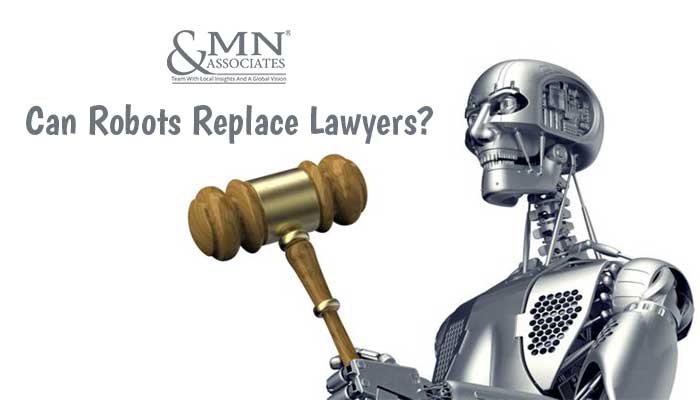
Can Robots Replace Lawyers?
The lawful framework can be difficult to explore, yet imagine a scenario where a robot could help you manage the entire procedure and give you individualized lawful guidance. Man-made brainpower (AI) and machine learning have developed exponentially in the previous years and is progressively being utilized to computerize forms in different fields including social insurance, transportation, and even laws.
Can a machine mess up with things that a decent legal advisor with a great deal of experience would somehow or another catch?
Expanding robotization to the lawful business guarantees to build productivity and save clients money, yet this dispenses the positions of professional legal experts as the advancement winds up accountable for endeavors right currently performed by individuals.
Robots and machine learning have just landed in numerous law firms and legal departments. Advancement has driven a couple of lawful guides to pressure that their profession after a short time, will transform into a setback of Silicon Valley.
Man-made intelligence (Robots) won’t replace lawyers.
“There is this popular view that if you can automate one piece of the work, the rest of the job is toast,” said Frank Levy, a labor economist
Portray of a legal market depicts, encountering rapidly with increased value rivalry, also there is an absence of efficiency in the services, a deluge of more competitors, and the certain power of innovation advancement. Hence, to remain applicable and to compete in a market, conventional law offices and legal divisions must understand the capability of AI and lawful innovation. In this regard, lawyers must grasp the interesting, rising estimation of AI, to manufacture a legal culture that fortifies the human esteem—legal counselors practicing, autonomous expert judgment, concentrating on significant, complex, and mission-basic work for their customers.
Currently, about 5% of legal counselor’s activity is totally mechanized with current innovation, where about 23% of legal counselor’s activity can be mechanized in the future. Innovation will change various parts of lawful work, but legal specialists foresee generously compensated lawyers will invest their energy in the best rungs of the “lawful ladder,” taking ahead a larger amount of individuals personal requests also non-legal counselors will play out the more normal lawful administrations.
“There is this popular view that if you can automate one piece of the work, the rest of the job is toast,” said, a labor economist
A man-made brainpower method called natural language processing has demonstrated helpful in filtering and foreseeing what reports will be significant to a case, for instance. However other lawyer’s errands/tasks, such as prompting customers, composing lawful briefs, arranging and showing up in court, appear beyond the reach of computerization.
Legal counselors Are Smarter Than Most People Know
Legal counselors have one of the most noteworthy normal IQs of all activity classifications. They’re a brilliant pack and they require the judgment so as to have the capacity to peruse individuals well. While machines are amazingly reliable with regards to managerial undertakings, they can’t play out any job that requires passionate knowledge and they are bound to complete poor employment with regards to surveying individuals.
From measurable examination to legal research, machines can complete a great deal of good work for the legal counselors, however with regards to genuine guiding and court, then there is no substitute of a human legal advisor.
Robots Can’t Think Like a Lawyer
Lawyers are the two-way personality. One face related to human values and an another with the terms of the law. One of the most important thing, a lawyer is taught in law school to think like a tactical lawyer. While machines can know everything there is to know about the law and access it within a second, though they can never be trusted with the high-level tasks. This isn’t only because they are unfit, but also because people just don’t trust them enough to put their lives in their hands. Roberts doesn’t have emotions, they don’t understand the human values, ethics they can’t answer all the human value questions in terms of future actions to be taken or needed.
Conclusion
As machine insight quickly enhances, the estimation of human expectations without Artificial Intelligence improvement will probably diminish. In these lawful associations, legal counselors will have the capacity to do what they are prepared for, as innovation can’t duplicate their work. They will practice their autonomous expert judgment, higher-arrange psychological expertise including basic reasoning and imagination, yet they will take the necessary steps speedier, more intelligent and all the more precisely utilizing AI and intellectual registering innovation.
Innovation is changing the lawful calling, yet it won’t make the expert judgment and mastery of legal advisors old. It will empower the individuals who embrace, utilize, and use it to give better and more practical lawful administrations and portrayal for their customers.
